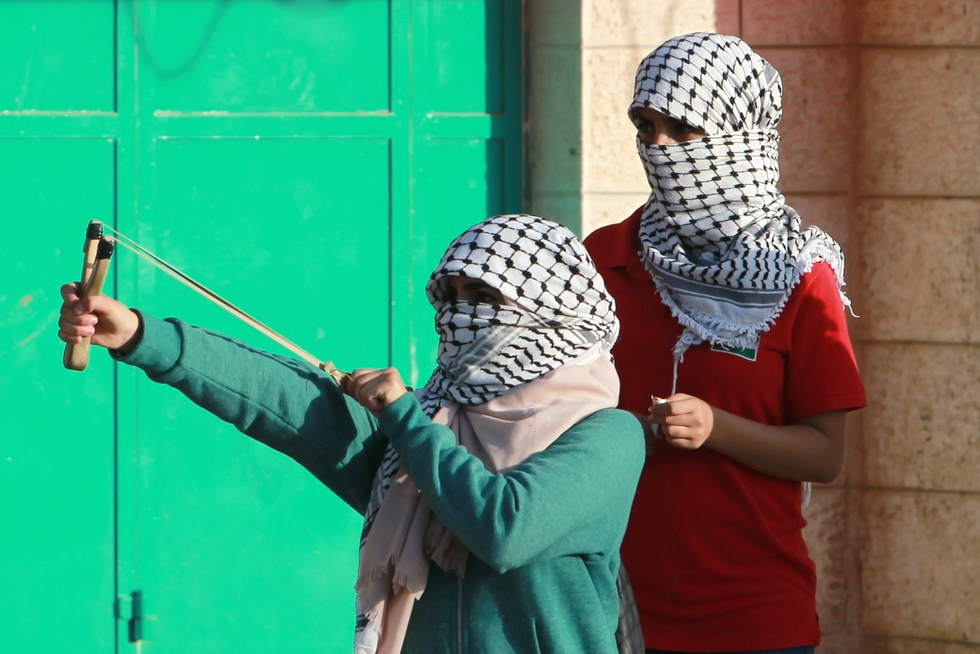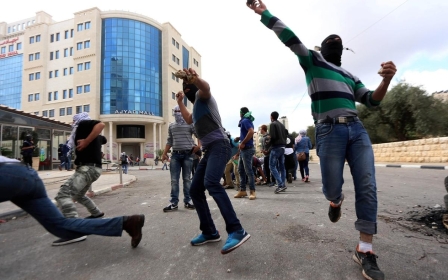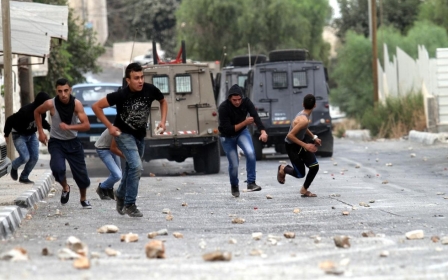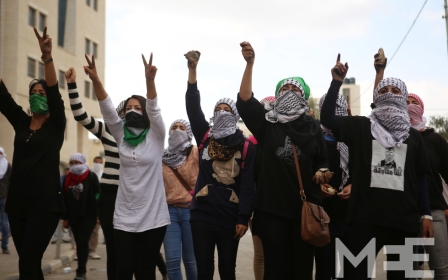Israel: In the death throes of a racist dream

In 1845, Leutenant Colonel George Gawler submitted a report detailing the potential for Jewish colonisation of Palestine. The obstacles he foresaw had to do with resources and the feasibility of convincing Jews to immigrate to Palestine. No consideration was given to the native Palestinian population already living there for centuries.
Decades later, in deciding the fate of Palestine, then a so-called British mandate, Lord Balfour declared: “We do not propose even to go through the form of consulting the wishes of the present inhabitants of the country.” But faced with a Palestinian revolt, the British retreated, realising the mistake of ignoring the will and humanity of the indigenous population. Then, when zionists made their first conquest of Palestine, expelling over 80 percent of the native population, David Ben Gurion (the Polish-born David Grunn) predicted triumphantly that the native population would surely disappear. “The old will die and the young will forget,” he said.
He too was wrong, and many decades later, as this zionist fantasy did not materialise, Israel hypothesised that brute force and complete colonisation of the land would at last achieve the eradication of Palestine’s indigenous society. Army chief of staff, Raphael Eitan put it most honestly when he said: “When we have settled all the land, all the [Palestinian] Arabs will be able to do about it will be to scurry around like drugged cockroaches in a bottle.”
Again, faced with the same mistake, Israel simply escalated its brutality. “We have to kill and kill and kill, all day, every day,” explained an Israeli professor; and a prominent Israeli lawmaker raised this call to genocide to include the murder of Palestinian mothers and their babies, whom she called “little snakes”. And now, like a petulant spoilt child who did not get his way on the Iran deal, Netanyahu gathered his gangsters, stomping their feet on holy ground to bring down the house, an epic tantrum for President Obama, as if to say look what I can still do.
The new escalation to eradicate Palestine now is to enlist the civilian population of Israel to arm itself and join their military thugs against our unarmed civilian population. Videos and news of recent random executions, stabbings, and the roaming bloodlust of mob vigilantes abound on the Internet.
And yet.
We remain.
Our ancient society, though fragmented and brutalised, stands defiant, persistent, passionate and steadfast. Though traumatised and leaderless, we remain, rebellious, brave and resolute. No matter where we are, occupied or displaced and scattered around the world – Gaza, the West Bank, Jerusalem, refugee camps of Lebanon or Syria or Iraq, exile in a diaspora that reaches every corner of the world - we continue to act in concert, bound by a collective wound, one that Jews ought to understand.
How surprised they must be. How utterly demoralised they must feel to have such great military might and somehow stand weak and small against our rocks.
How breathless you, Israel, must feel. How devastating it must be to fail so miserably at one task, year after year, decade after decade. To have repeatedly intensified tactics of death and cruelty but still not managed to crush us. To cart off small children by the thousands pissing their pants, and still find that thousands have taken their place the next day, hurling rocks at your tanks and guns. To imprison them so young as they cry with fear, scream for their mothers, only to grow up unbroken, defying and fighting you still. To demolish homes and whole towns, only to find that we rebuild and multiply faster than you. To see us dance, study, marry, and have babies through your endless siege, occupation, and slaughter campaigns. To see us live after you have shredded our hearts with grief and loss. To bomb and destroy our schools, prevent children and teachers from reaching their classrooms, and still face our literacy rate that rivals your own.
How frightened you must feel that we still do not fear you; that in the recesses of our being, we are a triumphant people and instead, it is you who is frightened. How profoundly disappointing it must feel to destroy our villages, dig in Silwan, under Al Aqsa and Al Shakhra decade after decade and still come up without forensic evidence to support your narrative, and simultaneously be faced with the multitude of Palestinians whose native claims are present, obvious, written, well known and undisputed. How frustrated you must feel that those of us you barred from our homes, whom you thought would forget, continue to write, create, protest, and expose you abroad, gathering more and more momentum for the Boycott Divestment and Sanctions campaign that is breaking the back of your lies. How defeating it is to spend millions of dollars to harass us abroad in order to silence us, only to find our voices grow louder.
Israel has made and remade the mistake of every colonial enterprise before them, because colonialism always arrives with a sense of supremacy that does not look upon native peoples as human. That is why Israel has always underestimated us. They do not understand, nor do they appreciate that we possess the most impulsive human lurch toward freedom; that our instinctive tendency is firmly toward dignity.
I see Israel’s dilemma. I see their fear. The pain of a racist dream that came so close but not quite. And I can understand that the way they thrash about now – violent, ugly, insanely insecure and incomprehensibly cruel – is the throes of zionism’s death.
- Susan Abulhawa is a Palestinian writer. Her latest novel is The Blue Between Sky and Water (Bloomsbury, 2015), with rights sold thus far into 21 languages.
The views expressed in this article belong to the author and do not necessarily reflect the editorial policy of Middle East Eye.
Photo: A Palestinian female protester uses a slingshot to throw stones towards Israeli security forces during clashes on 15 October, 2015 in the West Bank city of Bethlehem
Middle East Eye propose une couverture et une analyse indépendantes et incomparables du Moyen-Orient, de l’Afrique du Nord et d’autres régions du monde. Pour en savoir plus sur la reprise de ce contenu et les frais qui s’appliquent, veuillez remplir ce formulaire [en anglais]. Pour en savoir plus sur MEE, cliquez ici [en anglais].





